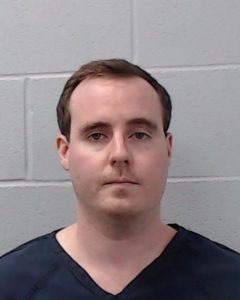
SAN MARCOS — At its Feb. 11 meeting, the Hays County Commissioners Court heard a presentation from Central Texas Food Bank (CTFB) reviewing the Hays County Community Food Needs Assessment.
CTFB provides food and grocery products to approximately 93,000 community members each week with partners, such as the Hays County Food Bank, serving 21 counties in Central Texas.
According to Matthew Gonzalez, Hays County Health Department manager, the county has been working with CTFB for the past year to conduct a food needs assessment.
“With Community Needs Assessments, we have a variety of research and data resources,” explained Tracy Ayrhart, vice president of the research and strategic partnerships for CTFB. “Community needs assessment are the ones that really elevate that community voice. Hearing from those who experience food access barriers and those who live and work in the community [can give us] a hyper local view of what food insecurity looks like on the ground [and the] community’s thoughts on what solutions would be feasible and desired.”
The needs assessment consisted of:
• A community profile
• Community discussions
• Stakeholder interviews, including public agencies and officials, education, healthcare and the library.
• Neighbor survey, with 243 respondents of the food insecure population.
• Three focus groups, consisting of 20 neighbors — both English and Spanish speaking — from Kyle, San Marcos and Uhland.
Hays County has a food insecurity rate of 15.9%, while Central Texas is at 16.4%, which means that nearly 39,000 residents don’t know where their next meal will come from, said Ayrhart.
“Compared to Central Texas, Hays County has lower rates of food insecurity, SNAP enrollment and households with no vehicles available, but a higher poverty rate,” read the presentation.
In addition to these numbers, Ayrhart noted that one-in-four community members from the food insecure population both have a family member with a disability and make trade-offs every month between paying for food, insurance, utilities, housing and transportation.
“It is just unfortunate the people are really having to determine what it is they need to pay for every month, whether they give up food or prescriptions or utilities or things of that nature. I am glad we do have local organizations that can help some in that effort. There is much to do,” said commissioner Debbie Ingalsbe.
The needs assessment found that causes of food insecurity include rising food prices and costs of living, rapid population growth, the COVID-19 pandemic and poverty and income volatility, which, in turn, affects specific demographics: “The cost of food’s going up … Especially like, [for] me — I’m on disability. I’m a student … and I’m feeding [my son] three times a day, even if I don’t eat,” said an anonymous neighbor from the survey.
The vice president explained that solutions to food instability in the county can stem from countywide coordination, such as community planning, long-term funding and staffing, because this can not only aid families that have lost federal-run nutrition programs, but also have a direct impact on local agriculture.
“Hays County is experiencing historical farm and ranch operation loss and agriculture land loss. What that does is put the local food supply chain at risk; it reduces the resilience the county has against disruptions in the global food supply chain,” said Ayrhart.
Other opportunities for improvement include: investing in key infrastructure, such as public transit, grocery trail, workforce development education and training; explore zoning policies that incentivize and strengthen agriculture and equitable food access; and activate “Food is Medicine” initiations, like nutrition incentive programs, produce prescription programs and nutrition education.
Despite areas of opportunity within the county, Ayrhart noted that the Hays County Health Department and school meal programs are a big help for community members with food insecurity, as more than one-in-four food insecure residents in the county are children.
“These are the things, these are the tools, that help us shape policy to serve our constituents and so, thank you so much for doing all of this very important work in our county to help our residents,” said Hays County Judge Ruben Becerra.
Sharing a similar sentiment, commissioner Morgan Hammer noted that seeing the presentation emphasized how much of an impact food insecurity has within the community: “I think this is our first in trying to solve all these different problems … Any way we can support, no one in Hays County should go without a meal.”
To listen to the presentation, visit bit.ly/3Exn1Hu. The Hays County Commissioners Court will meet next Feb. 25.













